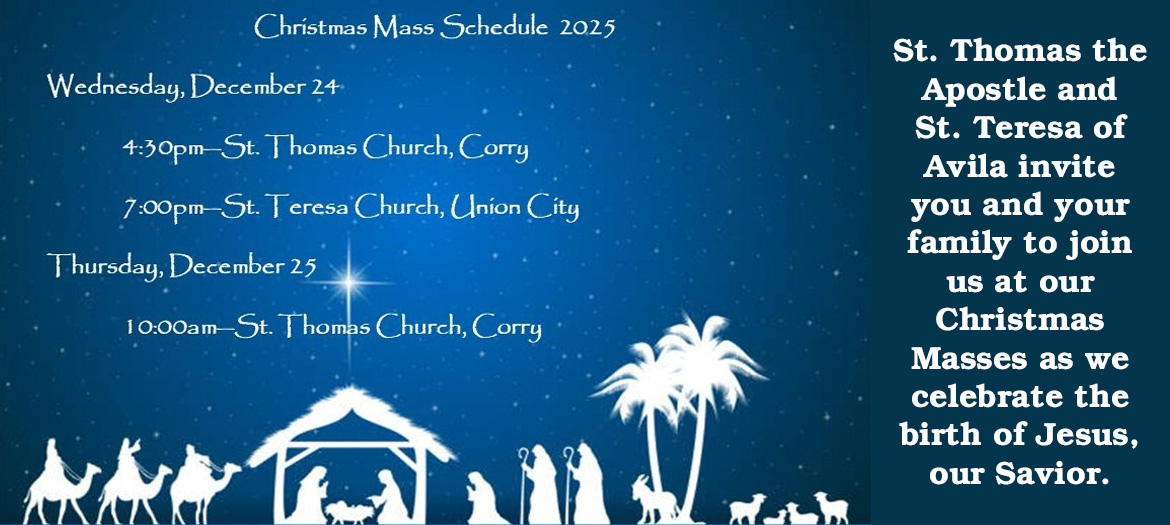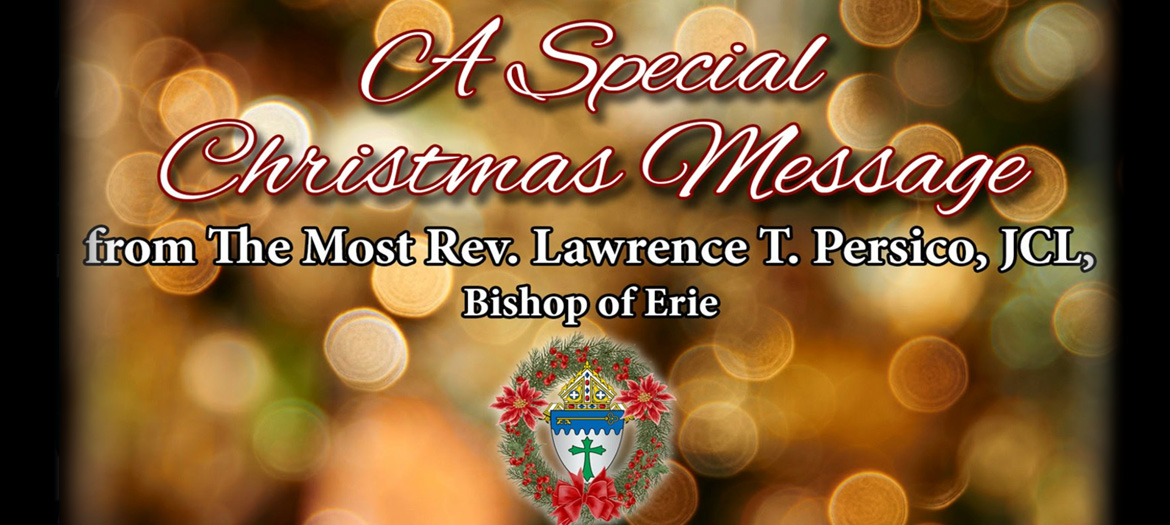This is the description for CBS Test X 091925.
With faith in Jesus Christ and a commitment to living Gospel values, St. Thomas the Apostle Parish and its mission St. Teresa of Avila Church serve the people of Corry, Union City, and its surrounding areas in northwest Pennsylvania. Our mission is to be a welcoming Catholic community by living our faith more fully through charity, education, evangelism, service, celebrating the sacraments, and proclaiming the Word.
We are a friendly and caring community that embraces the Roman Catholic faith. As a people of God, we rejoice in doing our very best to live and love like Christ!
Mass Times
Daily:
Tuesday and Wednesday at 8 a.m.; Monday and Friday at 8 a.m. - St. Teresa, Union City
Saturday:
4:30 p.m. (Alternating monthly between St. Thomas, Corry and St. Teresa, Union City with the Mass being at St. Thomas in September and moving to St. Teresa in October, etc.)
Sunday:
8 a.m.; 11 a.m. - St. Teresa Church, Union City
Confessions:
Saturday from 3:30-4 p.m. (where Saturday Mass is celebrated); or by appointment
Holy Day Mass:
8 a.m.; 7 p.m. (Check bulletin for Church)
Holy Day Vigil:
Check bulletin for Church
Latest News
moreOf course this is the short description field of CBS Test Y 091925




